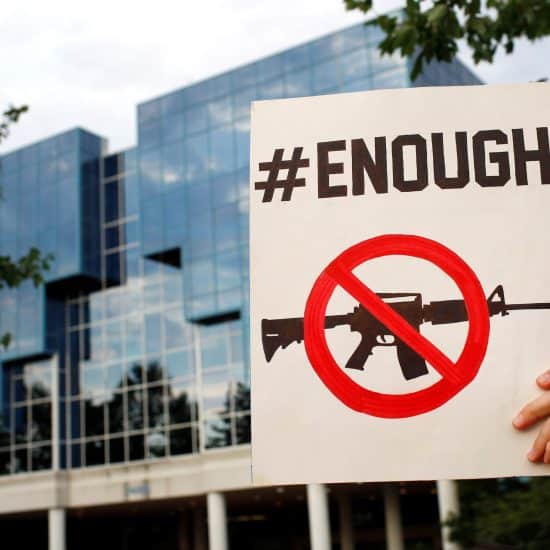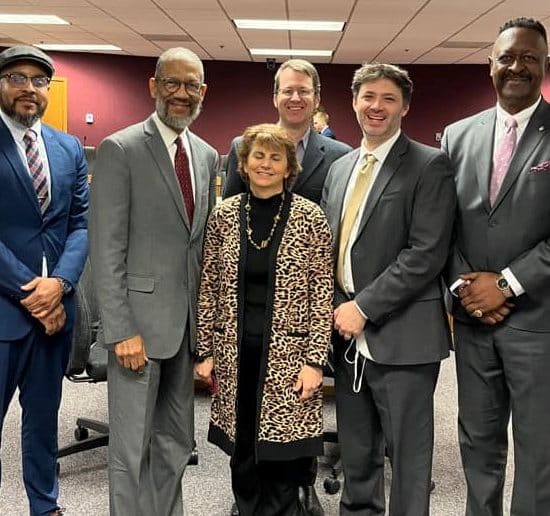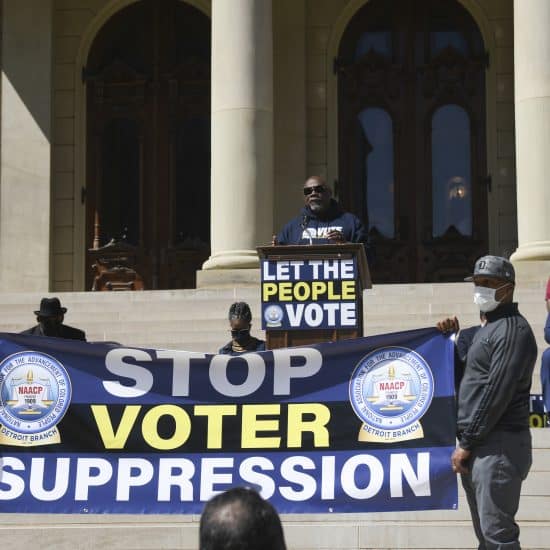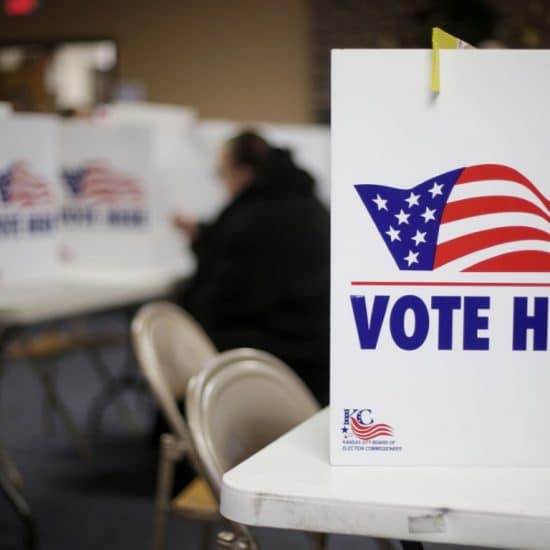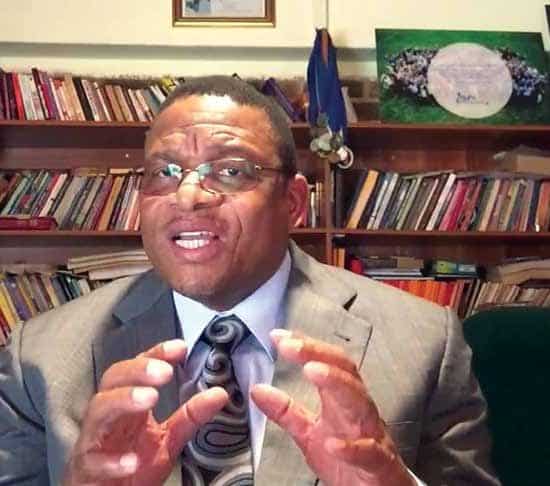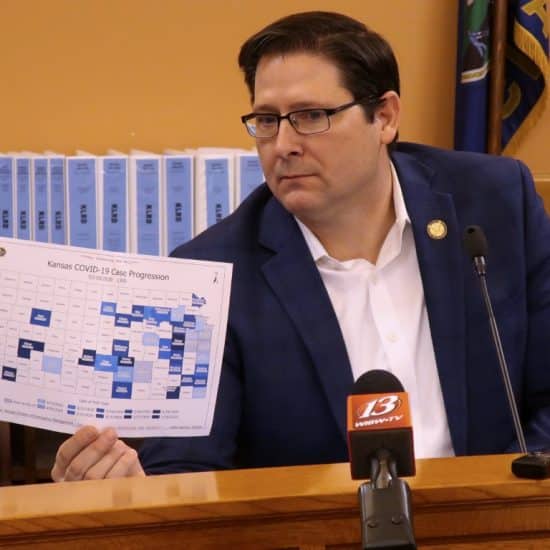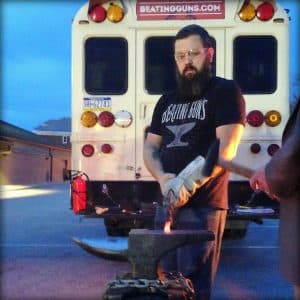 On Wednesday night, I went to church and worshipped by beating on a gun. As I stood by a blacksmith anvil with a hammer in my hand and the glowing red metal from a gun in front of me, others at the service starting singing, “We shall overcome.” And then I hit the gun.
On Wednesday night, I went to church and worshipped by beating on a gun. As I stood by a blacksmith anvil with a hammer in my hand and the glowing red metal from a gun in front of me, others at the service starting singing, “We shall overcome.” And then I hit the gun.
“Deep in my heart.” Beat.
“I believe.” Beat.
“We shall overcome, some day.” Beat.
As iron sharpened iron, I felt God’s presence in the fiery forge, on the anvil, in the crowd of witnesses to gun violence. Like the biblical prophets, we gathered to dream of a new world. To dream — like Isaiah and Micah — of a world where people will “beat their swords into plowshares.”
As part of a 37-city tour, authors and activists Michael Martin and Shane Claiborne came for this “Beating Guns” event in Jefferson City, Mo., on April 3. Cosponsored by Churchnet and Missouri Faith Voices, it was held at Quinn Chapel AME Church. The church’s logo includes a cross with an anvil, with the latter a symbol of the strength of their people and a reminder that the first church in the historically-black AME denomination was started in a blacksmith shop. And here we were worshipping with an anvil, hammer and forge.
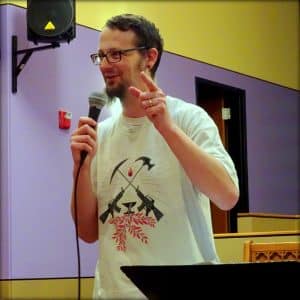 The night included Martin leading us in the process of turning a gun into garden tools, Claiborne talking about how gun violence isn’t a gun problem or a heart problem but a both problem and Chicago pastor Jonathan Brooks leading us in worship. W.T. Edmonson, associate pastor at Second Baptist Church in Jefferson City, Mo., read from the last sermon by Baptist prophet Martin Luther King Jr, which King preached exactly 51 years earlier on April 3, 1968, before being gunned down the next day. Cassandra Gould, pastor at Quinn Chapel and executive director of Missouri Faith Voices, spoke of losing her father to gun violence when she was 17. And Tilley Watson, a student at the nearby Lincoln University, testified about the pain of gun violence as two Lincoln students, both friends, were killed last semester in separate incidents. Around the anvil, others voiced remembrances of loved ones lost or national tragedies before welding the hammer.
The night included Martin leading us in the process of turning a gun into garden tools, Claiborne talking about how gun violence isn’t a gun problem or a heart problem but a both problem and Chicago pastor Jonathan Brooks leading us in worship. W.T. Edmonson, associate pastor at Second Baptist Church in Jefferson City, Mo., read from the last sermon by Baptist prophet Martin Luther King Jr, which King preached exactly 51 years earlier on April 3, 1968, before being gunned down the next day. Cassandra Gould, pastor at Quinn Chapel and executive director of Missouri Faith Voices, spoke of losing her father to gun violence when she was 17. And Tilley Watson, a student at the nearby Lincoln University, testified about the pain of gun violence as two Lincoln students, both friends, were killed last semester in separate incidents. Around the anvil, others voiced remembrances of loved ones lost or national tragedies before welding the hammer.
I was moved by the testimonies of those who lost family members and friends, by the statistics on the plague of gun violence in our society, by the historical connections of the date and place and by the music of the diverse congregation gathered that evening. But mostly I was moved by the prophetic imagination to declare that the world is not the way it should be and that we can create a better a future.
We shared laments about those lost, and anger about the present inaction of lawmakers meeting just one mile away (and much farther away nationally). But we also shared the hope of Isaiah and Micah by envisioning a better future for our children.
A future where our children aren’t killed while studying in their schools.
A future where our children aren’t shot randomly while playing just because they live on the “wrong” street.
A future where our children aren’t able to so easily commit suicide because of laws where toys are more regulated than guns, and gun shops more frequent than McDonald’s.
A future where our children aren’t terrorized by regularly thinking about the possibility of gun violence due to news reports and active shooter drills at school.
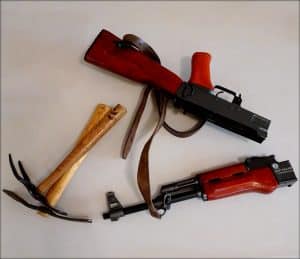 That world may seem unrealistic in the only country in the world with more guns than people. That world may seem impossible in a nation where politicians claim to offer “thoughts and prayers” but then vote as if they aren’t praying or thinking.
That world may seem unrealistic in the only country in the world with more guns than people. That world may seem impossible in a nation where politicians claim to offer “thoughts and prayers” but then vote as if they aren’t praying or thinking.
But that’s why we need prophets. Prophets like Isiah and Micah. Prophets like Michael and Shane and Jonathan. Prophets like W.T. and M.L.K. Prophets like Cassandra and Tilley. The world is not the way it should be. We should not accept that the world is as it must always be.
We shall overcome.
Some day.
Beat.

